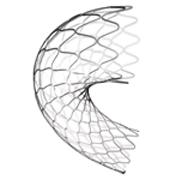
September 28, 2010 - Software downloaded during a routine office visit cuts the risk of inappropriate shocks by 50 percent for patients with implantable cardioverter defibrillators (ICD), according to research reported in Circulation: Journal of the American Heart Association.
Implanted defibrillators monitor the heart's electrical activity and deliver a shock to reset the heart to a normal rhythm if the pulse becomes too rapid and unable to sustain life. But if the lead wires connecting the device to the heart muscle break, the defibrillator may interpret rapid electrical signals caused by the fracture as coming from the heart - delivering one or more unnecessary and often painful shocks.
Although all leads can fracture, the most widely sold model — the Sprint Fidelis, used with many different defibrillator designs and removed from the market in October 2007 — had a much higher rate of breaks and inappropriate shocks. Downloadable Lead Integrity Alert (LIA) software monitors Fidelis leads for evidence of suspicious electrical signals, alerting the patient and recalibrating the device to make a shock less likely if a fracture is suspected.
"Hundreds of patients have been saved from unnecessary shocks by software that is safe and can be painlessly downloaded in one minute during a standard defibrillator check," said Charles D. Swerdlow, M.D., lead author of the study and a cardiac electrophysiologist at the Cedars Sinai Heart Institute in Los Angeles and clinical professor of medicine at the University of California, Los Angeles.
Researchers compared the experience of patients prior to their undergoing surgery to replace fractured leads, including 213 who had received standard daily monitoring and 213 monitored with the addition of the downloadable LIA.
They found:
• One or more inappropriate shocks were delivered to 70 percent of the patients who received standard monitoring, but only 38 percent of the patients with LIA (a 46 percent reduction in risk).
• Five or more inappropriate shocks were delivered to 50 percent of the patients who received standard monitoring, but only 25 percent of patients with LIA (a 50 percent reduction in risk).
• 72 percent of patients with LIA had no inappropriate shock, or had at least three days warning prior to an inappropriate shock, whereas this was observed in only 50 percent of those who received standard monitoring.
The study is the first to demonstrate that the downloadable LIA software dramatically decreases the chance of unnecessary shocks in real patients. The results reveal the possibility of making other improvements to devices while they're implanted, researchers said.
Medtronic, an ICD manufacturer, funded the study.
For more information: www.americanheart.org


 January 05, 2026
January 05, 2026 









